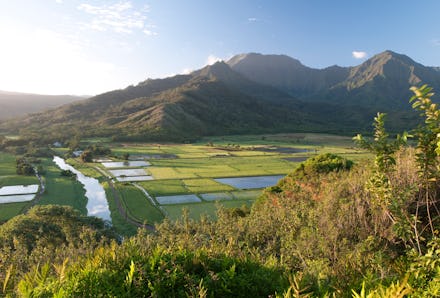Hawaii Just Did What No Other State Would for GMOs

"Without GMO, there would be no papaya in Hawaii," Eric Weinert, the general manager of Hawaii operations for papaya company Calavo Growers, told the New York Times in 2013.
Weinert, along with many other farmers and industry professionals, raised this concern last November when a bill threatened to impose strict GMO regulations on the state's industry. The law did eventually pass, but only after excluding Hawaii's king crop, papaya, from the bill's restrictions. But the law didn't last long. Why?
GMO economy: As it turns out, without GMO, there would be very little of anything on the island. That's according to U.S. District Court Judge Barry M. Kurren, who ruled this week that last year's bill is unnecessary because Kaua'i already has all the guidelines it needs for the growth and use of GMO crops.
The ruling comes amid recent steps by at least 20 states to curb GMOs by imposing restrictions on their production and sale. The bill, which the Kaua'i County Council initially passed last year, requires companies using pesticides or raising genetically modified crops to publicly disclose the location and types of GMO crops they grow, as well as the location, varieties and precise quantities of pesticides they use.
As the bill's original amendment attests, the future of the Hawaiian economy hedges significantly on genetically modified crops.
GMO papaya: In the 1990s, a devastating contagion known as ringspot virus all but wiped out the $17 million papaya industry, and with it, the entire Hawaiian economy. Ringspot was a growing concern for farmers across the island until, in 1997, scientists engineered a disease-resistant variety that could revitalize the economy. Say hello to the rainbow papaya, the magical, delicious fruit that also happens to represent 77% of the state's total crop production today.
Papaya aside, Hawaii remains a bellwether in the battle over GMO use across the U.S. Its subtropical climate, which is ideal for growing a diverse range of fruits and flowers, is also ground zero for a range of weeds and crop viruses. The thousands of acres of corn and soy the state supports can only thrive so long as they can resist pests and disease.
GMO Hawaii: Which is why the state has become a mecca for seed companies and farmers. Corn and soy are the two main crops in an industry that has ballooned 548% since 2000. Most of the food harvested there is eaten elsewhere; 100% of its corn is exported to North and South America.
If Hawaii says yes to GMO crops — which, as the court's most recent decision indicates, could happen sooner than we thought — it could signal to the rest of the country that genetically modified foods are, rather than a threat to nature, the best means we have yet of feeding the planet.